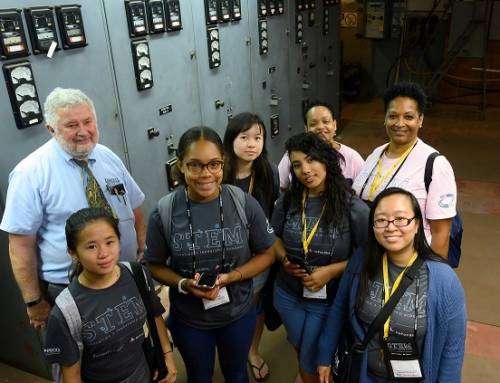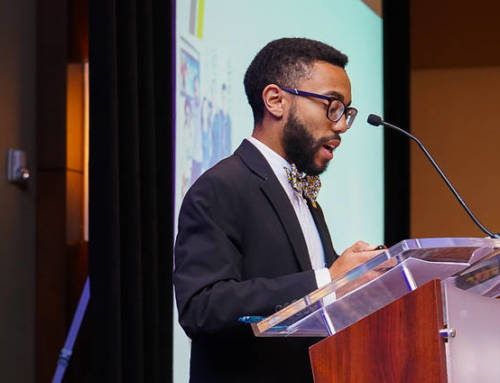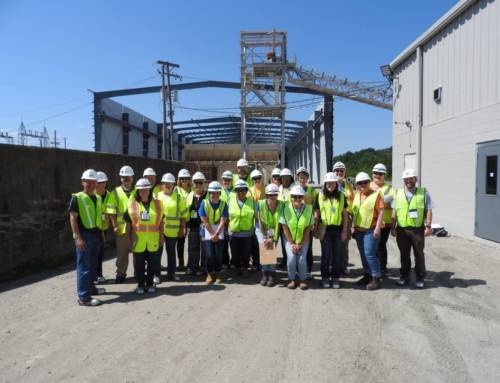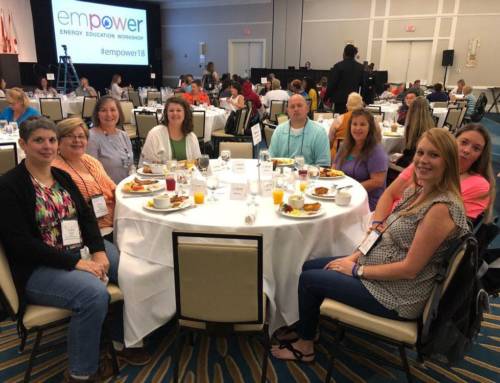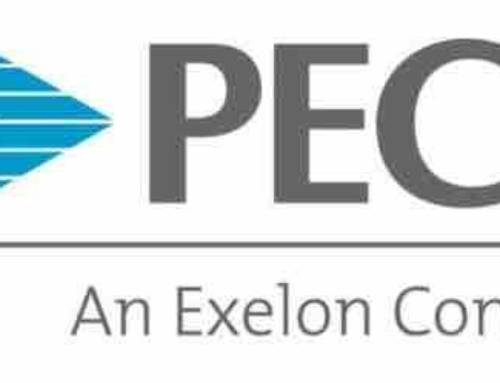NEED is proud to work with teachers and sponsors that take their solar energy activities well beyond the walls of their classroom and borders of the nation. Eric Johnson in Elk Grove, CA, for example, has been having his high school students build portable solar power generation sets for well over ten years now. These solar suitcases include a solar module and battery storage that all fit in a suitcase. Eric finds communities around the world that have no electricity and he and his students send the solar suitcases to them.
In 2015, our California partner, Pacific Gas and Electric Company, asked NEED to assist in designing a program to engage several high school classrooms in a similar effort: to build as many as 100 suitcases for distribution to developing countries around the world. NEED assisted in the program design and school selection, then provided support for the construction teams throughout the program.
A Solar Energy Mission to Kenya
On February 17, three school teams consisting of one teacher with two students left for Nairobi, Kenya, with solar suitcases they assembled during the school year to deliver them to places without electricity. Some 1.3 billion people are without access to electricity and the health, education, and prosperity that depends upon reliable access to power.
The trip is part of the Pacific Gas and Electric Company’s Solar Suitcase program that supports learning about the environment and sustainability through hands-on science and service learning opportunities at high schools throughout Northern and Central California.
Last summer, PG&E selected 19 high schools to participate in the second year of the program. Each school was provided with more than $8,000 worth of equipment to build and test solar suitcases and professional development training in partnership with the nonprofit We Share Solar. In all, PG&E supplied more than 100 suitcases to the participating schools. The suitcases are all slated to be deployed to communities without power in various locations in Africa, Asia, and Central America.
Think globally, act locally
Schools agreed to also plan and conduct a local student-led sustainability action project that would engage and educate the public in a lasting way. NEED provided training and support to the teachers and their teams and helped them complete the required two-minute video documenting their projects. School teams developed a diverse range of initiatives, from water conservation to trash reduction. Many of the projects included our favorite “Kids teaching kids” philosophy. The 19 video submissions were scored and used as the basis to select three schools to send solar ambassadors to Kenya:
Independence High School in San Jose established a comprehensive on-site composting program. Teacher Jordan Stone traveled with students Amy Hua and Kyle Mondina to represent their school and team.
Students Evelyn Ramirez and Isaiah Lucero joined teacher Juan Gomez as representatives of North High School in Bakersfield. Their team conducted a water conservation campaign throughout their community.
Rio Americano High School in Sacramento made an extraordinary effort. Schools were required to conduct just one local sustainability project, but teacher Joyce Dibble decided to put the task to all the students in both of her AP environmental science classes and this resulted in an impressive 17 projects, each with it’s own video! The winning project raised community awareness about the importance of recycling not just aluminum but all recyclable and compostable items. Matt Grossman and Max Glenn were selected to join their teacher on this exciting 12-day trip.
These are all terrific local service learning projects, but the bigger picture is about the solar suitcases school teams assemble and the distant communities that receive them. Lives are changed when electrical power becomes available. New business enterprises pop up, like providing haircuts and charging cordless devices using solar power. Students are able to read at night, clinics are able to have better light and can operate medical equipment that would otherwise be useless. Some communities use their solar power to become connected to the Internet and better participate in their government and local affairs. The possibilities are endless.
A Cultural Safari for Visitors and Hosts
The mission to deliver and install solar suitcases to schools, clinics, and other was the backbone of a rich ten-day cultural experience for the travelers and included these features:
Two days included travel to Nairobi and orientation in advance of trekking out.
On day three teams departed for their camp in the Maasai Mara region, passing thousands of animals migrating through the Great Rift Valley.
Participants learned the basics of Swahili, took a water walk and played games with children at a local school. Later activities included a lorry ride through the Mara watching for the “Big 5”—lions, elephants, buffalos, leopards and rhinos.
Later there was a medicine walk, Maasai warrior training, and teams worked on a community project unrelated to the solar suitcase. Education programs related to health, economics, and other issues that impact Kenyans are provided throughout this comprehensive cultural experience.
To learn more about the experience through the eyes of teacher, Jordan Stone, read his blog here.
And visit this page to read about the program at PG&E Currents.
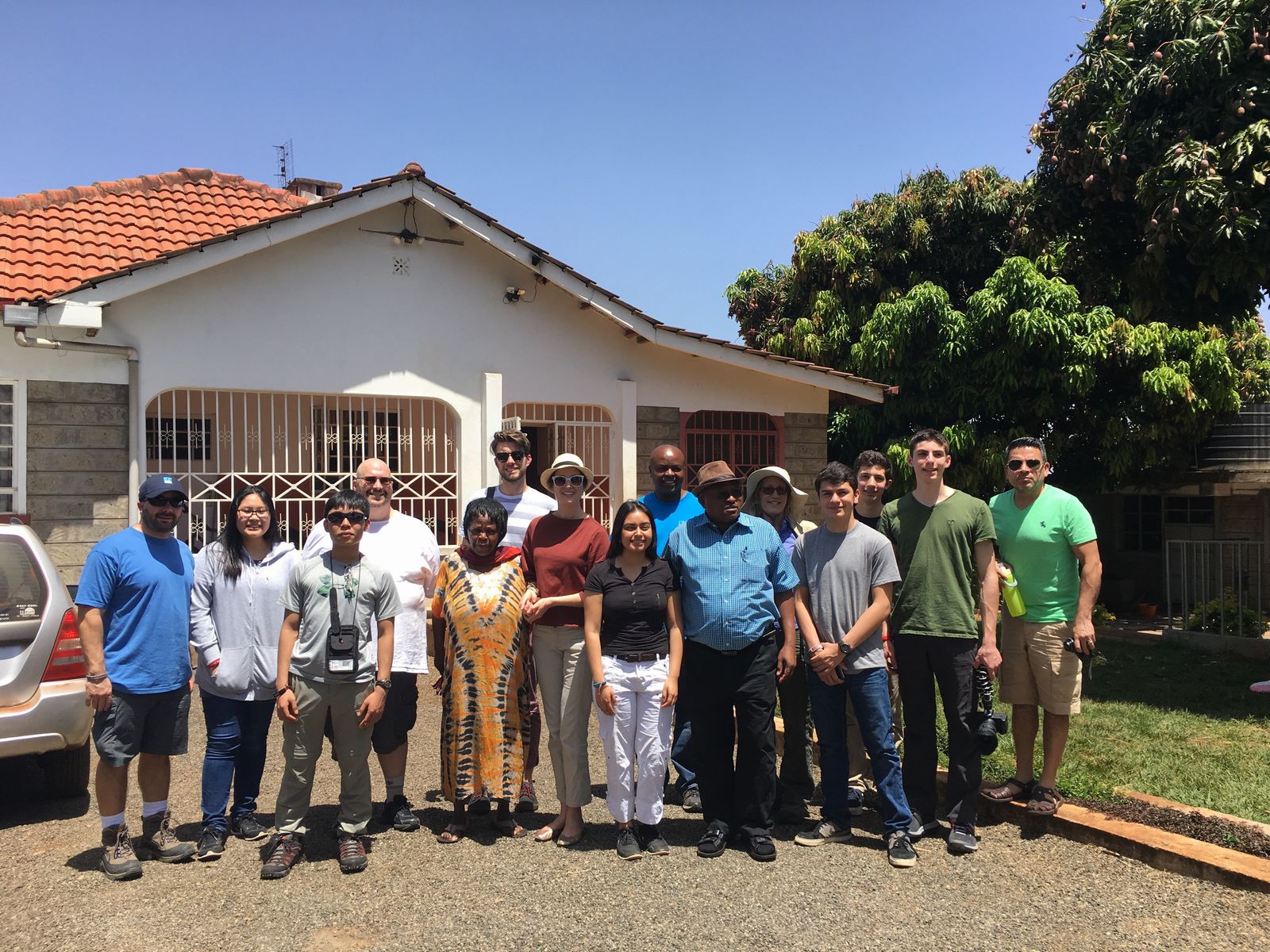
Teachers traveled from the Nairobi Airport to nearby Rosslyn, where the rested up and prepared for travel to the Maasai Mara the following morning.
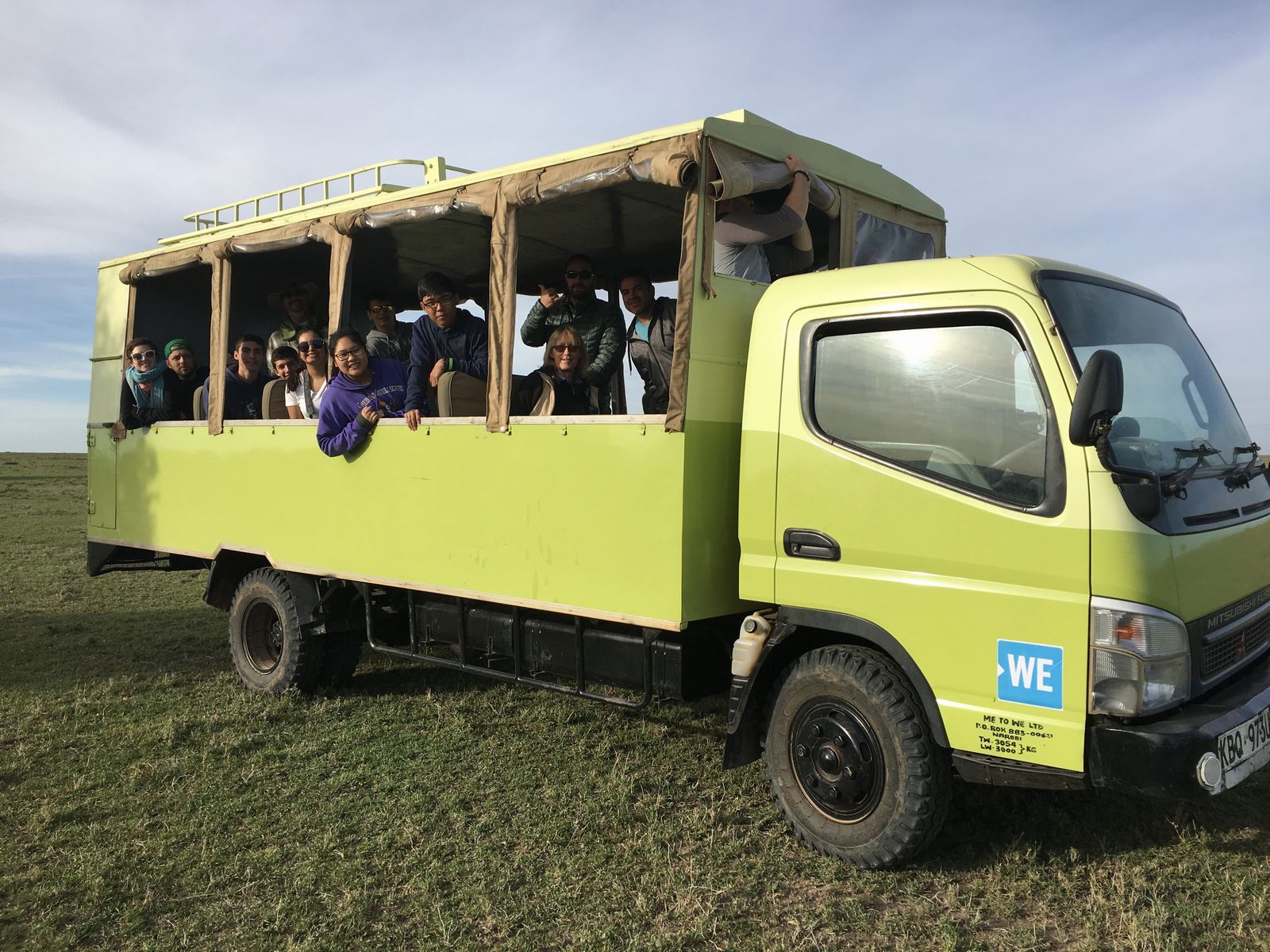
After two days of installing solar suitcases, the group loaded up on this lorry to set out on safari!
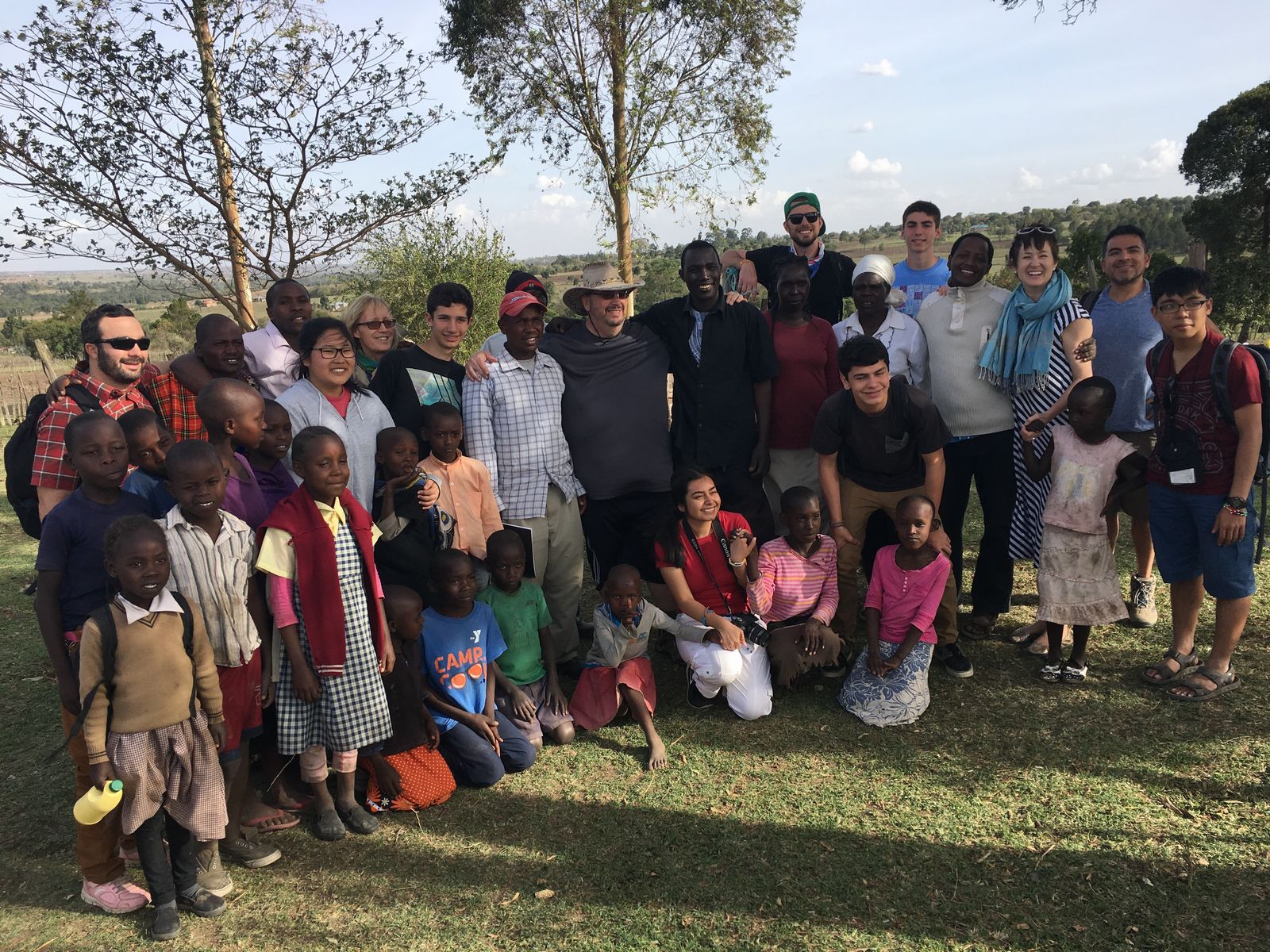
This year’s teams were able to visit with some of the recipients of last year’s suitcases. This group was very excited to show us the goats they were able to buy thanks to the income they received by charging people to charge their devices through the solar suitcase.
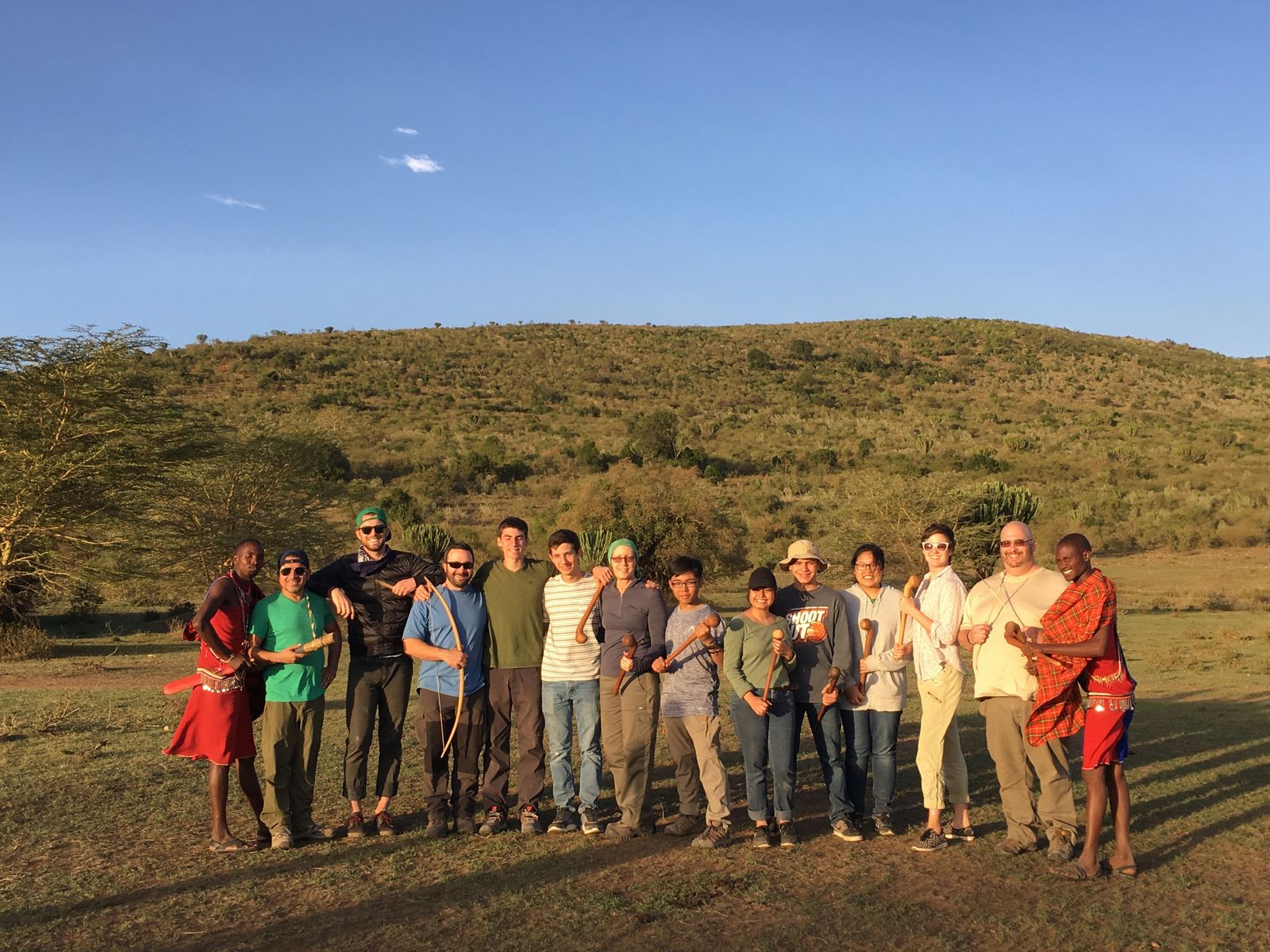
Maasai hosts provided our team members with lessons on the use of the “Rungu”, a type of throwing club used for hunting game. PG&E solar suitcase program director Emily White (third from the right) nailed her practice target on the first attempt.
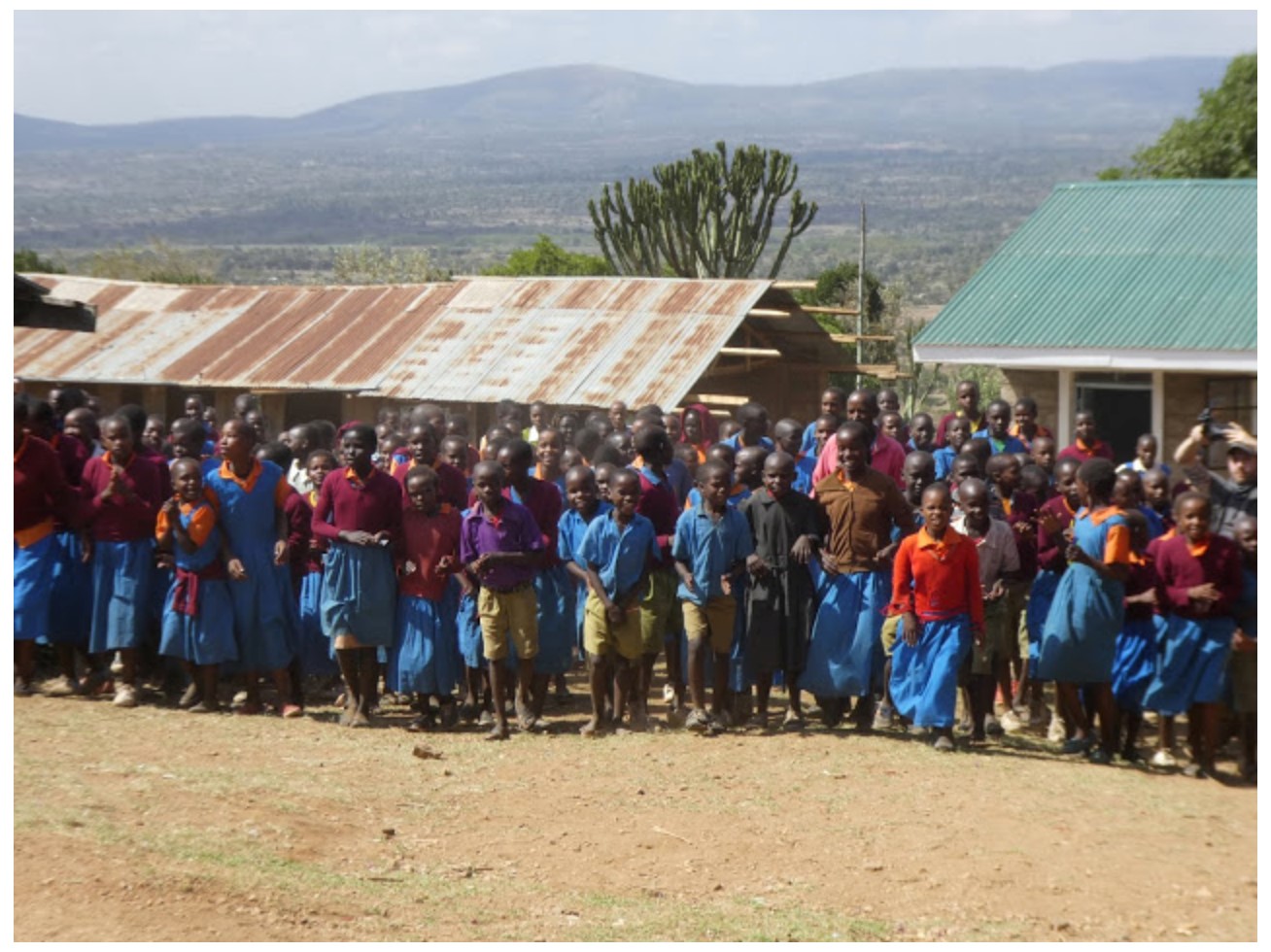
Students at Pimbenet School greet our ambassadors on installation day!

